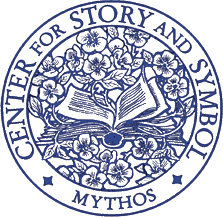
Register Articles Joseph Campbell Search
This course would be of interest to anyone who finds themselves in a mentoring role. The day satisfies six-hours for clinical supervisors but has wider applications. Virtually all work in the helping professions includes guidance or coaching, so this material has wide applications.
The best healers continue their own inner work. This workshop will look at our selves both as mentors and as earnest students. For example, careful tending of boundaries is crucial for ethical professional conduct on the part of both guide and protégé. We will review key issues and reflect on our own personal systems for managing difficult situations.
Discussion will draw on the relationship between budding wizard Harry Potter and his key teachers, Albus Dumbledore and Minerva McGonagall. The adventures are useful studies of challenges faced by trainees, clients, and ourselves. Like Harry, we all need to find courage, allies, and guides in the task of discovering our true selves. To rise to the possibilities implied in our own life stories, we must learn our share of magic. The wizardry may be leadership or creativity but the contribution can be powerful in the lives we impact. The tales demonstrates the task of identifying the unique qualities of a protégé.
We are sobered by the mayhem caused by the sorcerer’s apprentice. As we caution our trainees about careful use of their new roles, we have to factor in inexperience and ignorance. Resistance to procedures many stem less from character flaws than lack of information about why guidelines have come into existence. Our understanding of the nuances of the roles we play improves as we explain them to our protégés. The principles covered in presentations can be broadly applied to mentoring in many situations.
Describe the process of identity formation
Recognize core issues of mentoring
Acknowledging unconscious aspects of the collaboration
Modelg authenticity to encourage unique strengths
Explain the process of making ethical decisions
Model authenticity as an exemplar
Demonstrate how reflective practices support reliability
Select a seminar from the Current Course Offerings
Register online or call the Center at 805-687-7171
This seminar is designed to advance the skills of practicing doctoral-level psychologists. Presentations cover updates on clinical expertise. The day is also useful to other mental health practitioners and to certain helping professions, such as physicians, clergy, and educators with mental health counseling responsibilities.
The following CE credits are available:
Psychology, LMFT, LCSW, LPCC, Ed Psych, NBCC : 6 CE hours
Nursing : 7 hours
This course meets:
Six Continuing Education Hours for Psychologists, MFTs, LPCCs, and LCSWs
All 6 hours of Supervision Training required for MFTs, and LCSWs who supervise MFT interns
All 6 hours of Supervision Training required for California Psychologists
All 6 hours of Supervision Training required for California health professionals who supervise LPCC interns
6 hours toward the 15 hours of Supervision Training required for LCSWs and MFTs who supervise ASWs

Jonathan Young, PhD is a psychologist (PSY10231) who consults with organizational leaders and arts professionals. He teaches at the Pacifica Graduate Institute in Santa Barbara, where he created and chaired the unique doctoral level department of mythological studies. His books and articles focus on personal mythology. His background includes assisting mythologist Joseph Campbell at seminars and serving as founding curator of the Joseph Campbell Archives and Library. Dr Young is contributing producer and featured commentator on the History Channel’s Ancient Aliens television series.
Anne Bach, M.S., MFT 38891 is a specialist in uses of writing in psychotherapy. She gives presentations on creativity as inner work at major conferences, and lectures widely on psychological dimensions of expressive writing. Her clinical background includes poetry therapy with seriously mentally ill patients.

Zoom link goes live at 9:30 a.m., California time - Seminar 10 a.m. to 5 p.m.
- Being a role model to help protégés develop skills
- Supporting the emerging identity
- Please return on time
Using reflective practices to maintain core values
- Dealing with blocks to learning
Becker Christina (2004) The Heart of the Matter: Individuation as an Ethical Process. Wilmette, IL: Chiron Publications
Beebe, John (1992) Integrity in Depth. College Station, TX: Texas A&M University Press
Guggenbuhl-Craig, Adolf (2000) Power in the Helping Professions. Putnam, CT: Spring Publications
Hollis, James (2008) Why Good People Do Bad Things: Understanding Our Darker Selves New York: Avery
Johnson, W. Brad and Charles R. Ridley. (2004) The Elements of Mentoring. New York: Palgrave Macmillan
Kugler, Paul (Ed.) (1996) Jungian Perspectives on Clinical Supervision. Zurich: Daimon
Neumann, Erich. (1969) Depth Psychology and a New Ethic. New York: Harper
Pipher, Mary (2003) Letters to a Young Therapist (Art of Mentoring) New York: Basic Books
Yalom, Irvin (2017). The Gift of Therapy: An Open Letter to a New Generation of Therapists and Their Patients. New York: Harper Perennial.
Young, Jonathan (1996) Saga - Best New Writings on Mythology Vol. 1. Ashland, OR: White Cloud Press
Young, Jonathan (2000) Saga - Best New Writings on Mythology Vol. 2. Ashland, OR: White Cloud Press
Dr. Young also gives frequent media interviews, public talks, workshops, and in-service trainings throughout the U.S. and internationally.